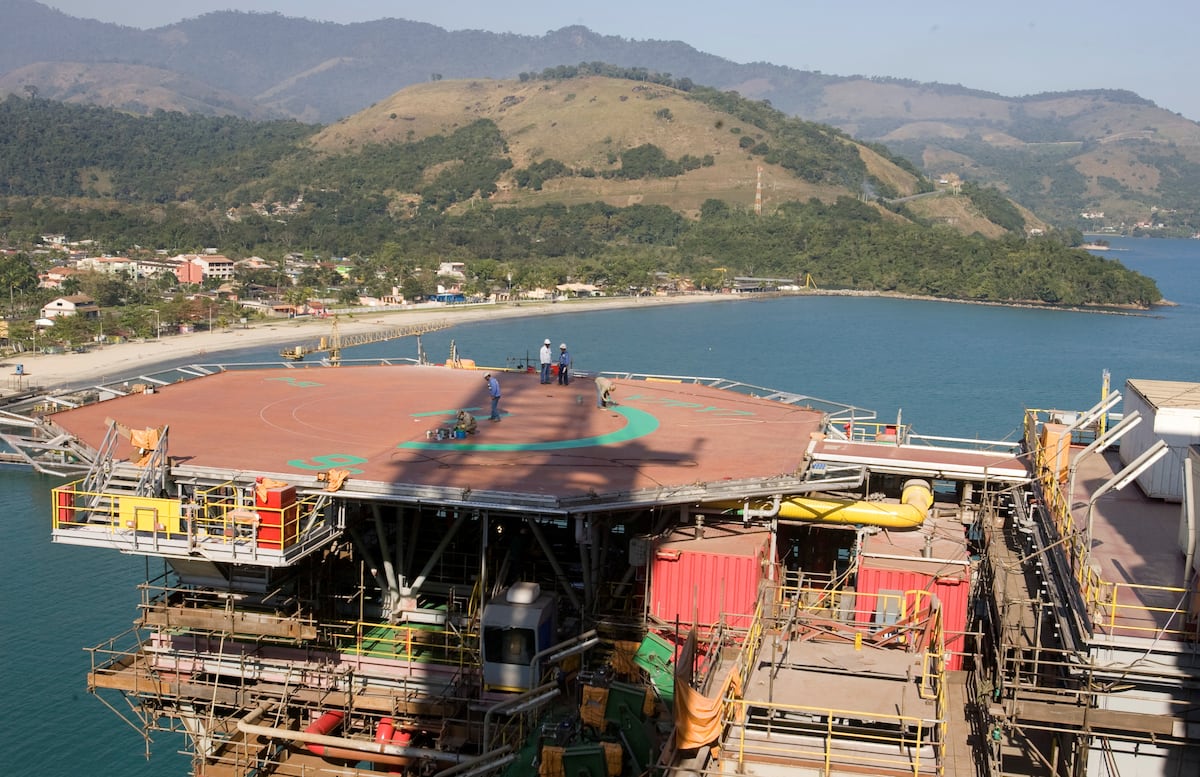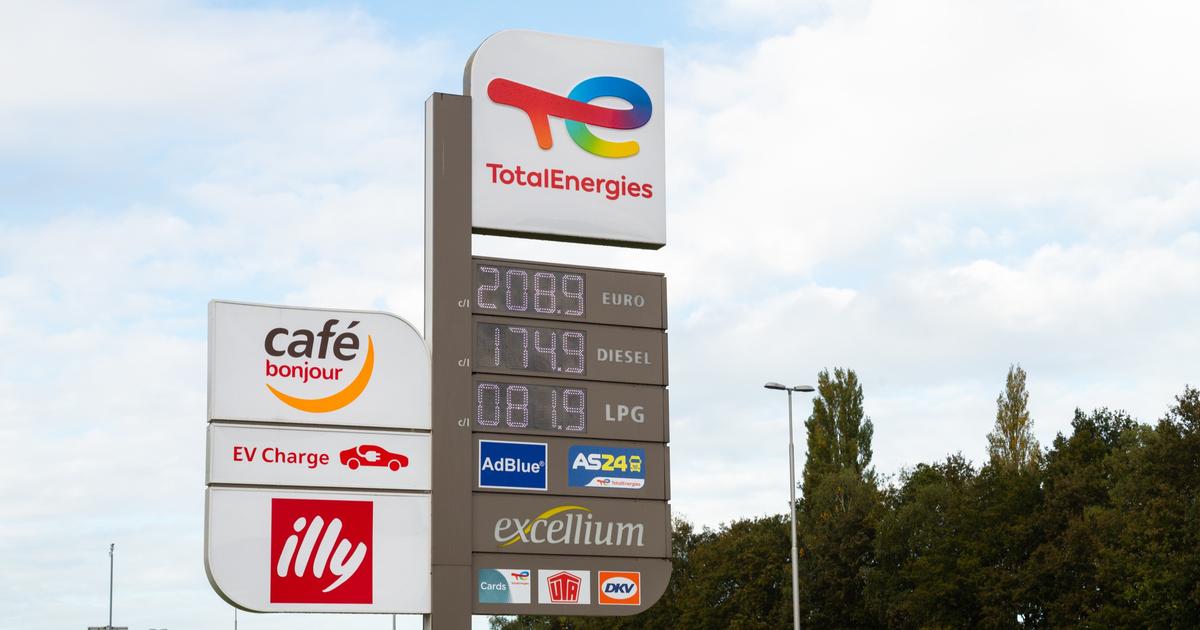Crude oil and natural gas prices skyrocket: Answers to the bizarre consequences of the Ukraine conflict
Created: 07/03/2022, 22:20
By: Patrick Freiwah
Petrol cans: In the shadow of the Ukraine conflict, energy prices in Germany have risen dramatically.
© Michael Bihlmayer/Imago
Drivers break out in a sweat when they look at fuel prices.
Both petrol and diesel seem to be getting more expensive every day.
Explanations of the most important questions.
Munich – The international community of states is pushing the end of the “black gold”, as a result of the Ukraine conflict*, the need no longer appears “only” important in terms of climate protection.
How are the severely turbulent oil market, the war in Ukraine and the enormously increased prices connected?
Answers to the most important questions:
Why are fuel prices so high in 2022?
Speculation and fear as drivers
Energy-driven inflation was already significant in 2021, and this also affects fuel prices.
This effect was fueled further with the escalation in the Ukraine conflict (chronology*).
Global wholesale prices for Brent and WTI oil on Monday (March 7) reached levels not seen in almost 15 years.
The Opec cartel and the Opec Plus countries including Russia have great influence through their decisions on production volumes, with the USA there being another dominant player.
If the oil states get more "black gold" out of the ground, this increases the supply.
As the scarcity decreases, the prices usually go down.
Demand also plays a major role.
The economic recovery after the Corona crisis has increased the hunger for oil in many places.
One effect is that market participants stock up on excessive amounts of crude oil because they fear a worsening of the war.
A subsequent "passing on" of price increases first to the economy and later to consumers is unavoidable.
And that is the important point now.
Oil prices were already soaring before the Russian invasion of Ukraine, and have been so since then.
US Secretary of State Antony Blinken is advising Europe on an import ban.
However, the federal government is still reluctant to call for an energy embargo.
Speculation and concerns about shortages alone have long been driving crude oil prices.
In the morning, the North Sea variety Brent increased by up to 18 percent and stood at 139.13 dollars per barrel, in the summer of 2008 the price was last higher.
The US variety WTI ($130.50) was similar.
Fuel price forecast: will petrol and diesel be even more expensive than they are now?
Will there be an import ban on Russian oil and natural gas?
There is pressure internationally, but the federal government is acting cautiously.
From the consumer's point of view, it should stay that way: Should the embargo come about, energy would become more expensive again.
The Fuels and Energy Association said the industry had already begun to reduce imports from Russia.
However, alternatives are still not available.
In view of the high total quantities, short-term replacement is "extremely demanding and not fully feasible".
With the crude oil coming by tanker - for example via Rotterdam - a switch to other supplier countries is still relatively easy.
A large part of the energy still comes to Germany via the Russian Druzhba pipeline*.
"Delivery interruptions due to damaged infrastructure and Russian counter-sanctions could have consequences for Europe's energy industry," said the analysis company Scope Ratings.
The major US bank JPMorgan published a frightening forecast as to whether the end of the road for oil prices has now been reached: If the current disruptions continue, the analysts expect the North Sea variety Brent to reach a price of 185 dollars per barrel by the end of the year.
Commodity expert Gabriele Widmann from Dekabank expects higher energy prices in the long term because cheap Russian energy is a thing of the past: "In extreme cases, we may have to pay up to three euros per liter of fuel," says RTL/ntv.
Why is diesel suddenly as expensive as petrol - and sometimes even more expensive?
When looking at the price of diesel, many drivers are rubbing their eyes in amazement: diesel is sometimes more expensive than petrol in Germany.
The main reason is the premature, high demand for heating oil.
Diesel is taxed less than petrol and especially in March the price gap to premium petrol is usually relatively large, explains the ADAC in an analysis.
However: For some time now, the demand for heating oil has been so strong because many homeowners fear delivery problems due to the Ukraine war and are already stocking up for the coming winter.
Is diesel fuel now in danger of becoming scarce?
"Remains available, but getting scarcer"
On the other hand, importers have reduced imports of diesel from Russia*, as explained by the Fuels and Energy trade association (en2x), which is responsible for refineries and branded gas stations.
Last year, Germany had obtained four million of the 35 million tons consumed in Germany from the largest country in the world in terms of area.
"Diesel remains available, but is becoming scarcer," said association spokesman Alexander von Gersdorff.
Rationally, the high diesel price is due to the supposedly unfounded concerns of consumers.
Diesel now permanently as expensive as petrol?
ADAC takes a position
People who rely on their cars have a lot of worries: ADAC advises motorists to fill up in the evening rather than in the morning.
In the course of the day, the price of petrol at one and the same filling station often fluctuates by around 7 cents.
The question of where to fill up is also crucial: independent filling stations are often cheaper than branded filling stations.
On the highways, refueling is often around 20 or even 30 cents more expensive.
The reason is the more or less intense competition and the behavior of customers, says an expert from the traffic club.
Its prognosis at least gives hope: ten years ago, diesel was once more expensive than petrol, but that is a big exception.
"It won't stay that way forever."
Will there be a VAT reduction on petrol and diesel?
The price of crude oil accounts for only part of the costs at the pump: With a Super E10 price of 1.96 euros, taxes and duties in Germany account for a whopping 1.05 euros.
Nevertheless, the oil price is the strongest price driver: a dollar increase in the oil price translates into almost a cent for gasoline or diesel.
Since the beginning of the war, the price of oil has risen by around 20 dollars a barrel - should the state step in to relieve the burden on citizens?
In view of the sharp rise in energy prices, leading Union politicians are pushing for a reduction in petrol tax: the rate must be reduced from 19 to seven percent “as quickly as possible”, explained Markus Söder* (CSU) on Monday.
Overall, because of the situation in Germany, an "immediate energy price brake" is necessary, especially in the fuel sector.
Saarland's Prime Minister Tobias Hans (CDU) is also calling for a "fuel price brake".
At the same time, Söder discussed a possible reduction in VAT to zero via corresponding decisions at EU level.
This is also possible for a limited time, explained Bavaria's Prime Minister.
Fuel prices had risen sharply as a result of inflation.
Since the escalation in Ukraine, the unfortunate development has continued.
© Teresa Kröger/Imago
Why is there a gas price explosion?
Worry about import ban
As with crude oil, the price of gas has recently risen sharply.
According to data from the Federal Institute for Geosciences and Natural Resources (BGR), Germany recently obtained more than half of its natural gas requirements from Russia.
The gas flows through transit pipelines through Ukraine and Belarus and through the Baltic Sea via Nord Stream 1.
Nord Stream 2 certification has stopped.
In the case of gas, too, political decisions and fears are the key drivers of inflation: the price of natural gas in Europe has reached new highs in view of a possible import freeze for Russian energy supplies.
On Monday, a megawatt hour was temporarily traded for 345 euros at the Dutch trading point TTF - an increase of around 60 percent.
In the UK, the price of a so-called therm, a unit of heat used there, rose to 800 pence.
Because Russia is an important country of origin for raw materials, the war is also having a dramatic impact on the energy markets and at the same time is fueling debates about a realignment in energy policy.
Commerzbank analyst Carsten Fritsch attributed the "price explosion" on Monday to such considerations in the West.
There is also speculation that Europe could decide to stop Russian gas imports, the expert explained.
So far, however, "the gas is still flowing normally," Fritsch added.
Who will be hit hardest by rising energy prices?
The end users, of course
Germany's leading politicians such as Annalena Baerbock stated that Germany had to pay a high price because of the Ukraine conflict.
However, it is less government politicians than the citizens themselves who are faced with problems due to the rise in fuel prices.
Industry-specifically, particularly energy-intensive sectors such as the chemical industry are confronted with the price spiral.
The branch of industry has long been warning of major problems should gas become scarce in Europe, the German association head Wolfgang Große Entrup told
dpa:
"In this case, the chemical companies are threatened with exploding prices for natural gas at a historically extremely high price level anyway." There is no question that consumers will ultimately ultimately bear the enormous additional costs caused by the escalation in the Ukraine conflict.
China, which tends to be neutral in the Ukraine conflict, is also dependent on preliminary technology products and raw materials from abroad.
Much of it has to buy from geopolitical rivals.
(PF with material from dpa/afp)
*Merkur.de is part of IPPEN.MEDIA





/cloudfront-eu-central-1.images.arcpublishing.com/prisa/MN66YGPQPRILE3TOGBKUQ35FWI.jpg)

/cloudfront-eu-central-1.images.arcpublishing.com/prisa/Q6LRL67I6V6VNCCK3X2WKOMGCI.jpg)